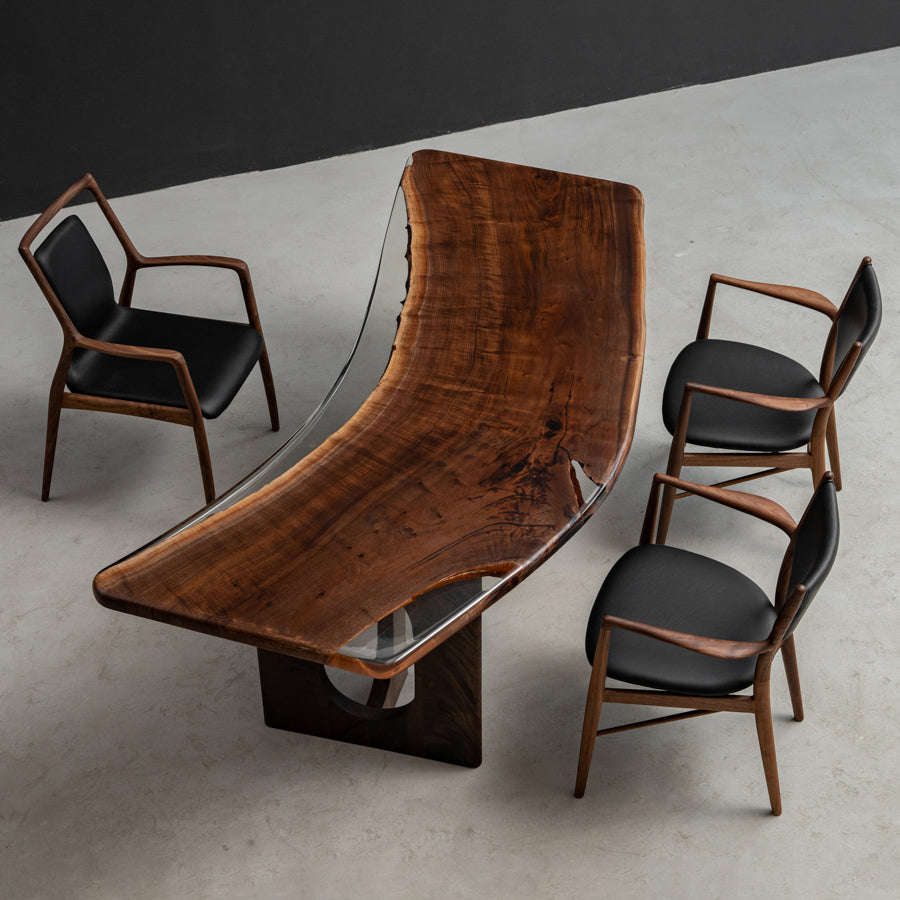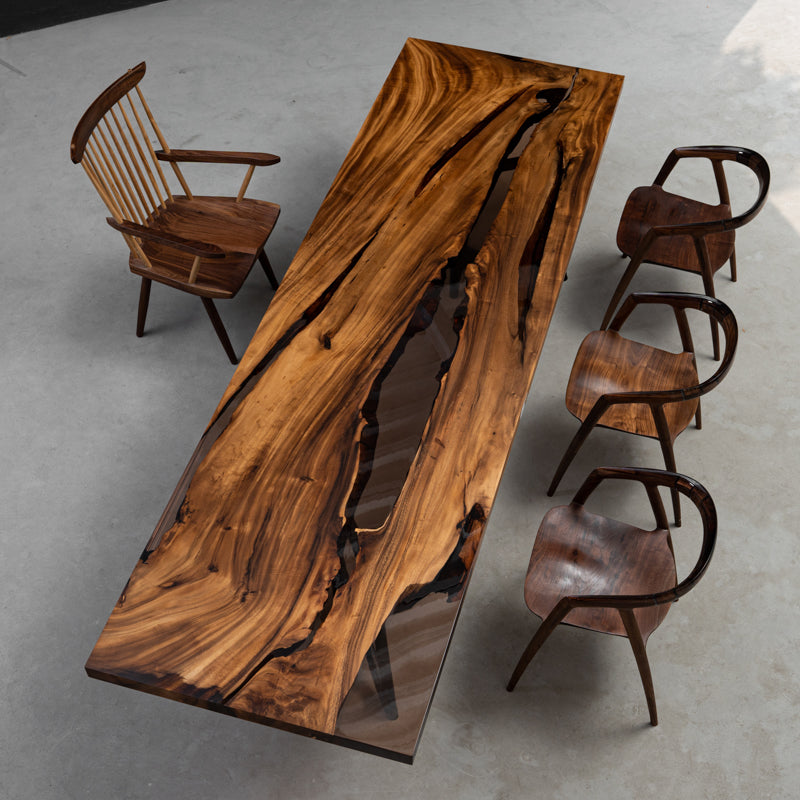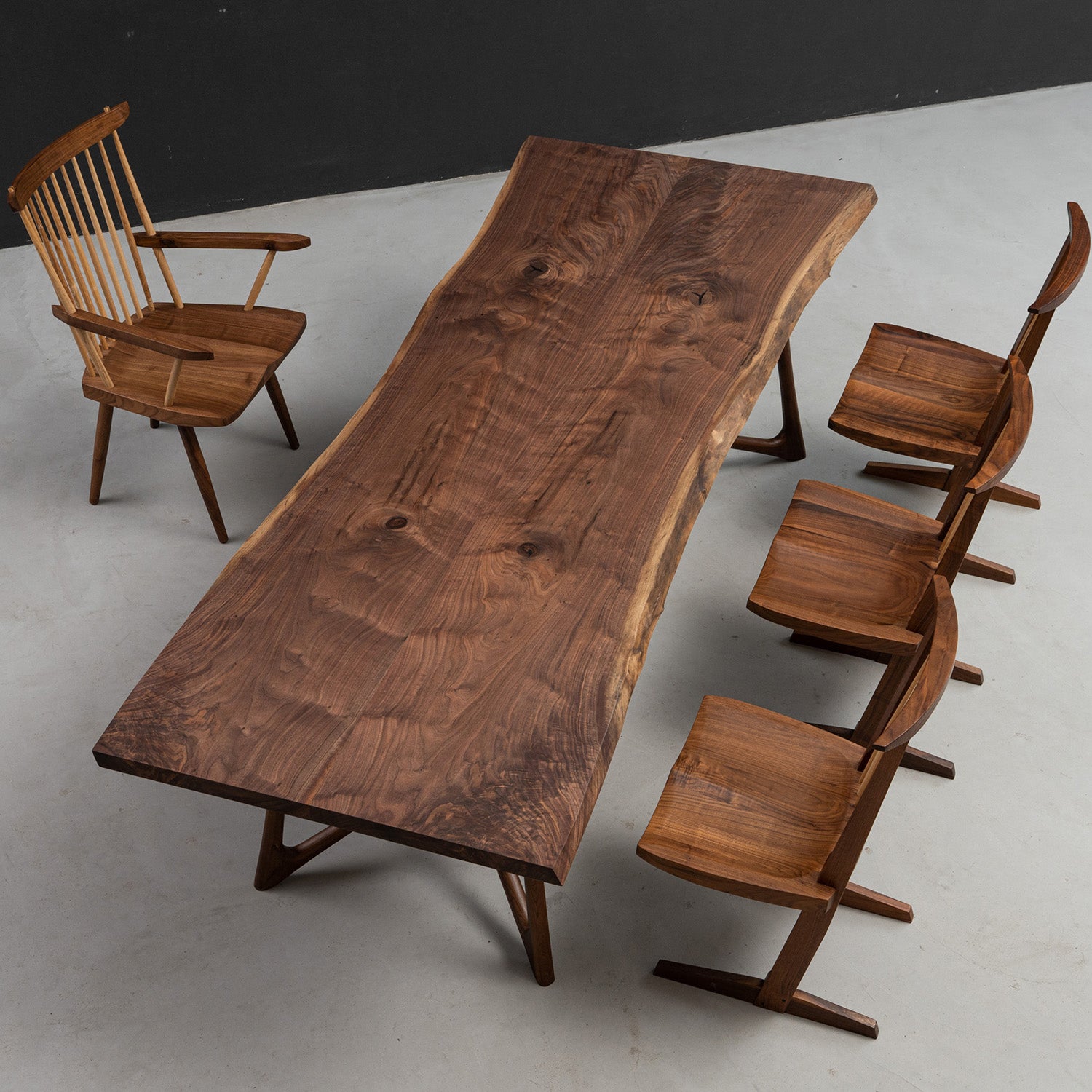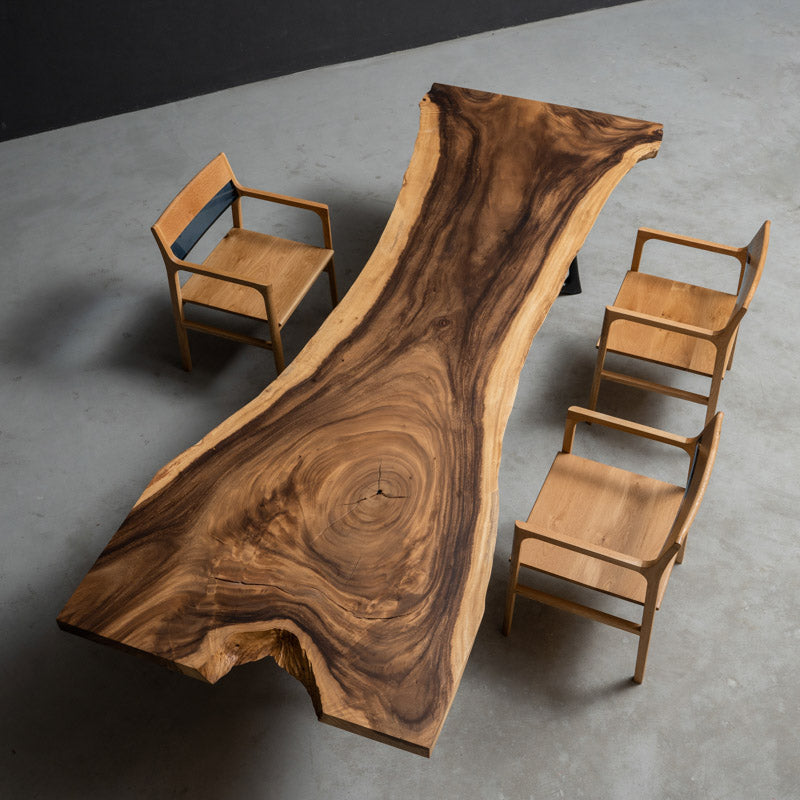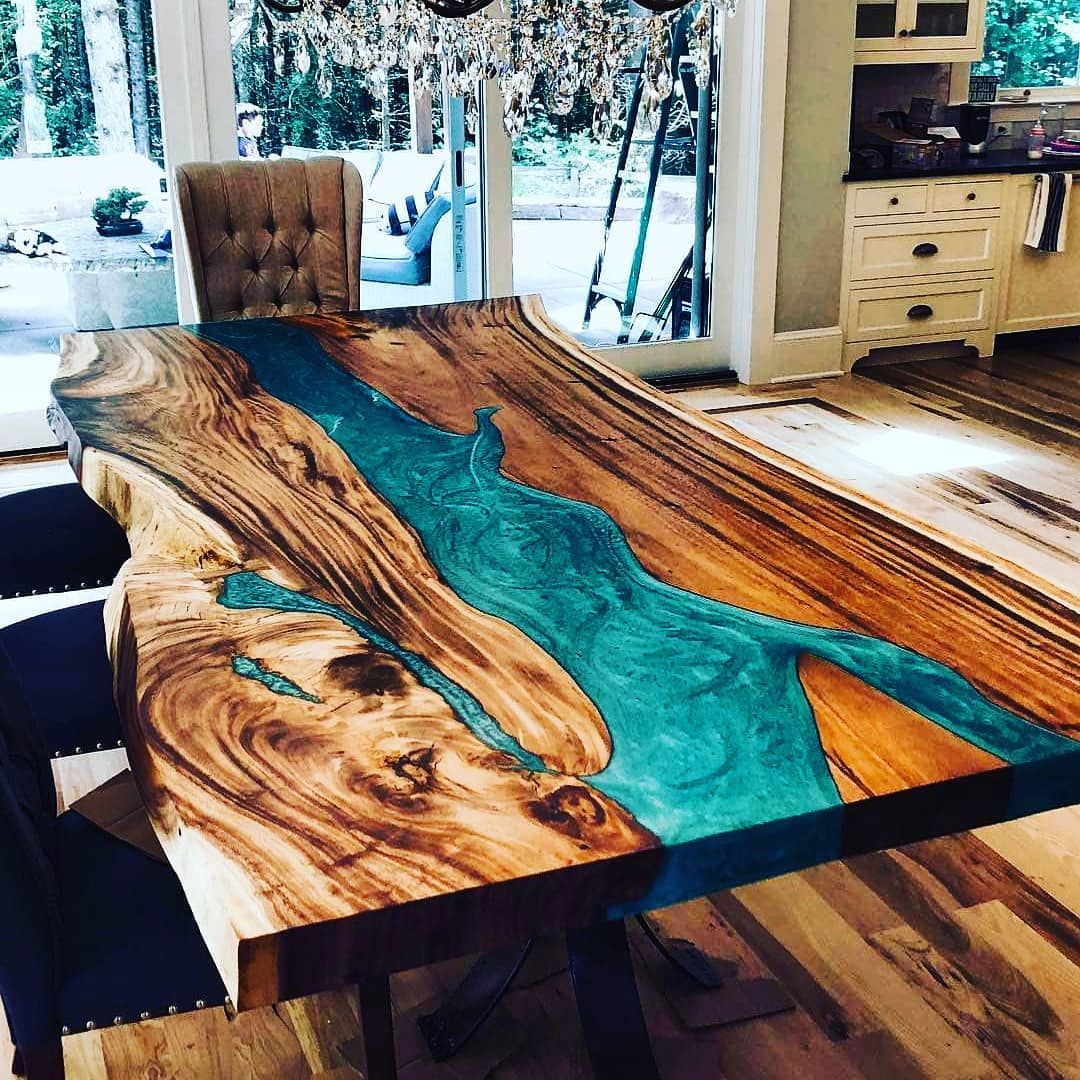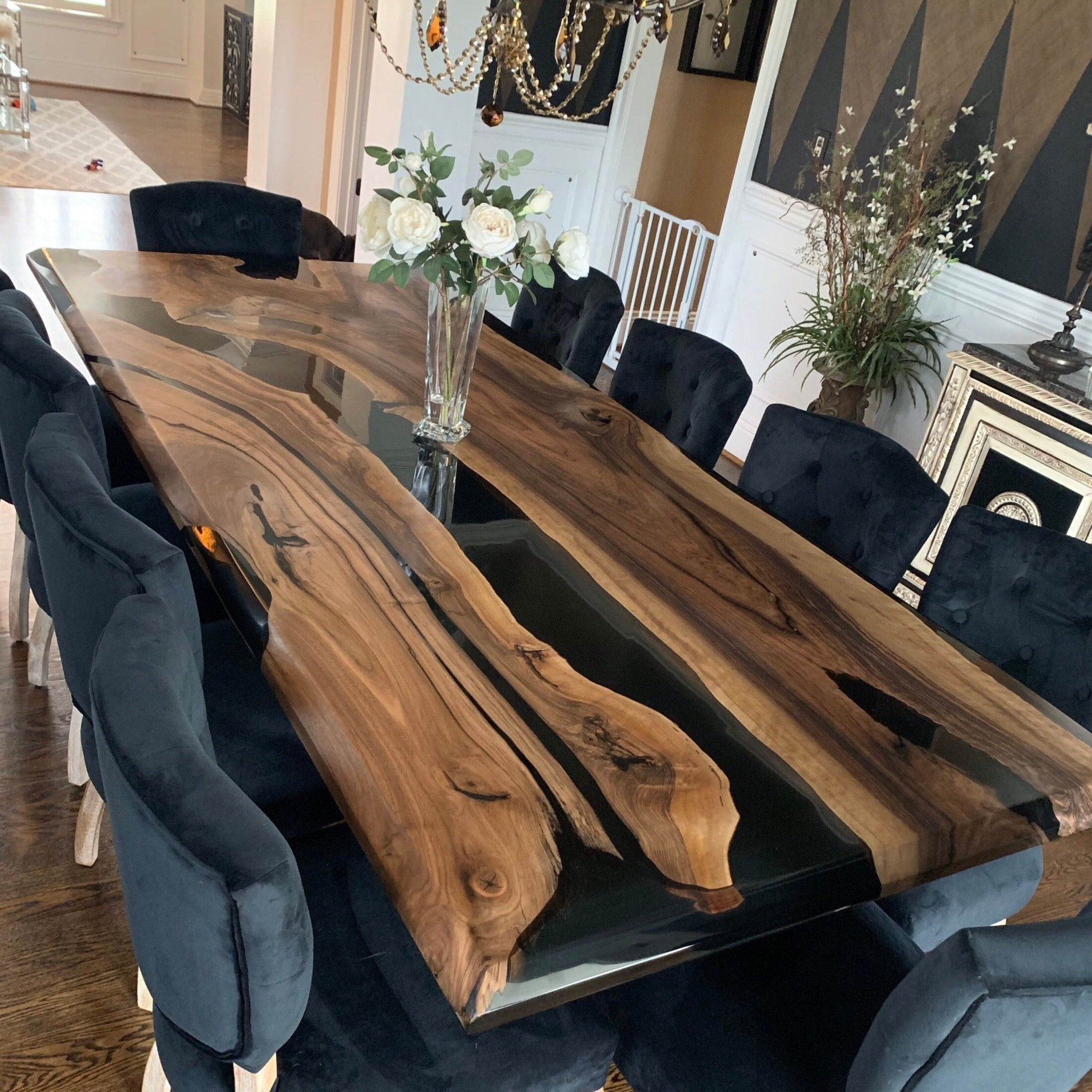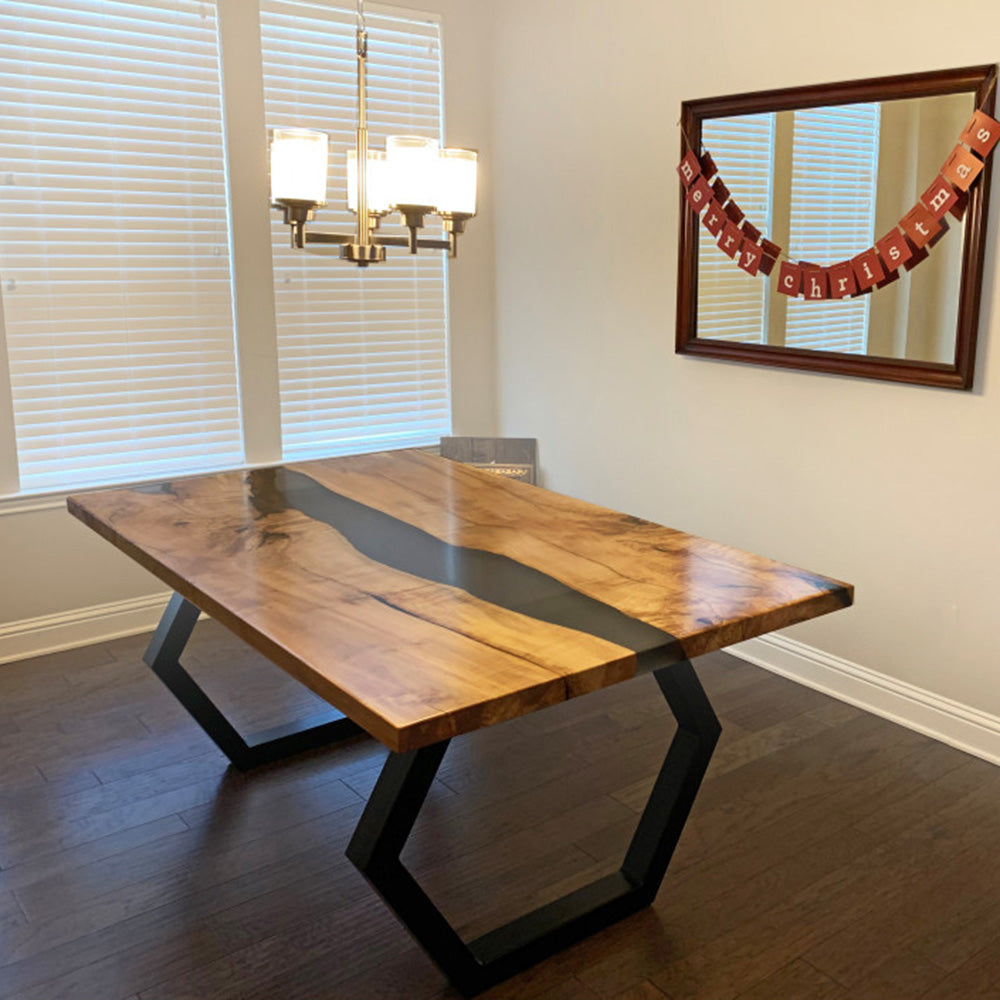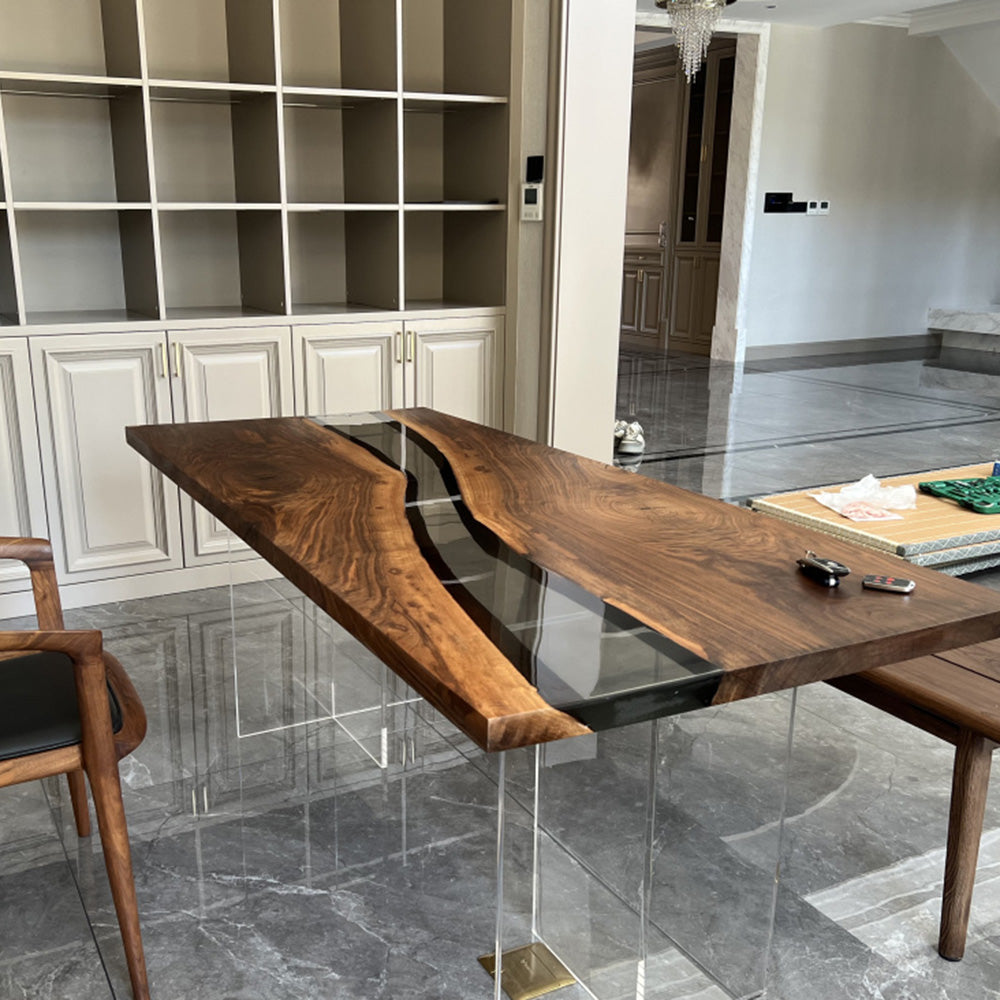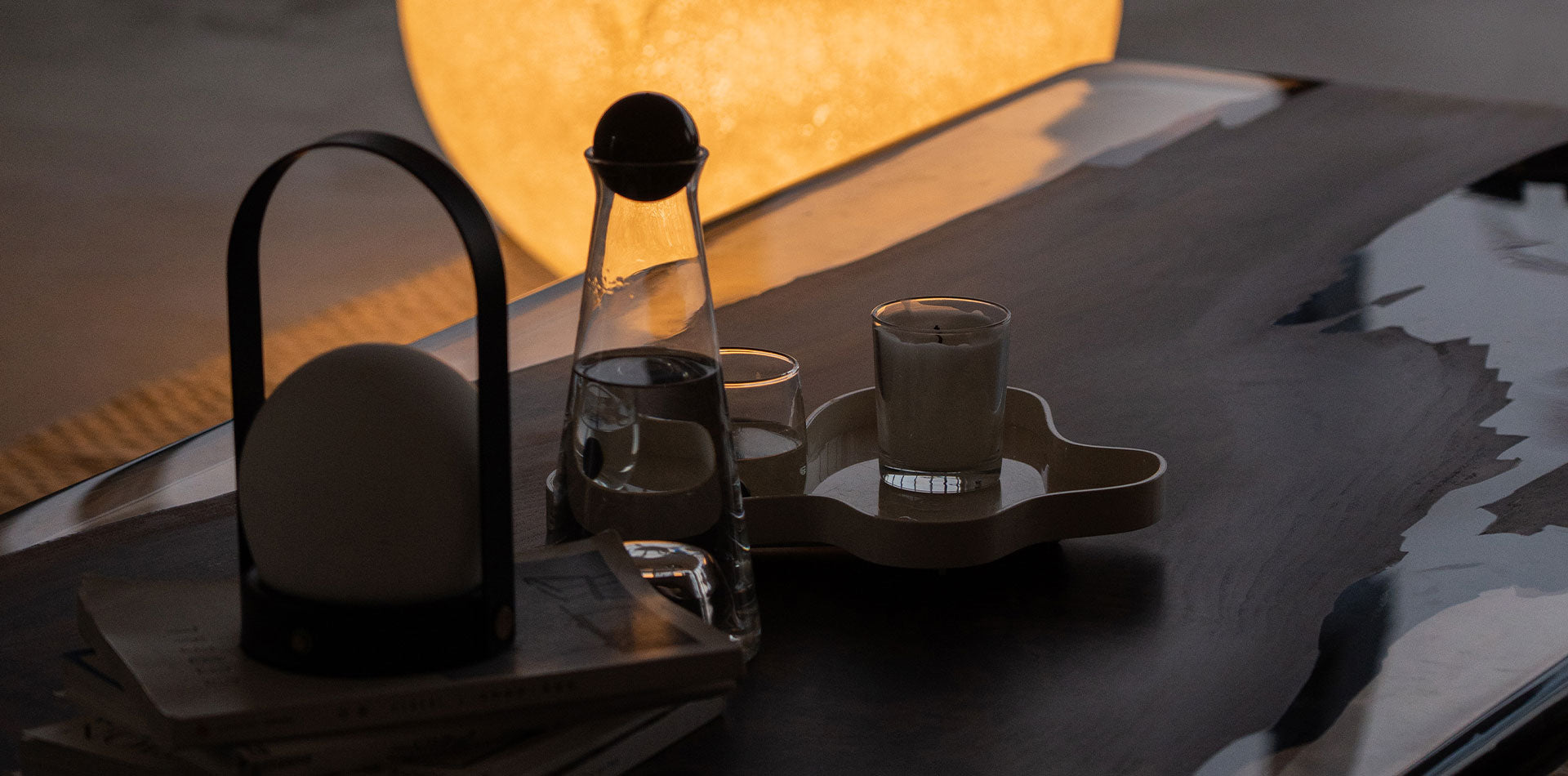
Walnut wood is a rich dark hardwood primarily sourced from trees in the Juglans genus, commonly known as walnut trees. Native to the Northern Hemisphere, especially North America, Europe, and Asia, walnut wood has been cherished for centuries due to its deep color and versatile applications.
Characteristics:
Texture: Walnut wood exhibits a range of grain patterns, from straight to wavy, creating dynamic visual textures that are often enhanced during polishing or fine finishing.
Color: Freshly cut walnut wood has a creamy hue, but the most valuable part is the heartwood, ranging from deep chocolate brown to purplish-black. Over time, the heartwood develops rich golden tones.
Density: It is a medium to hard wood, striking a balance between durability and workability.
Why it's suitable for dining tables:
Luxurious Appearance: The deep tones of walnut wood contribute to an elegant and luxurious atmosphere, making it a focal point in dining spaces.
Versatility in Design: Whether pursuing a modern or classic aesthetic, the unique grain patterns and colors of walnut wood can complement various styles.
Strength: Walnut wood, being a hardwood, is sturdy and durable, capable of withstanding daily use.
Advantages and Disadvantages of Walnut Wood Tables:
Advantages:
Elegant Aging: Walnut wood ages gracefully, developing a more refined and beautiful appearance over time compared to some woods that may degrade.
Unique Patterns: Due to its distinctive grain patterns, no two walnut wood tables are identical.
Stability: Compared to softer woods, walnut wood is less prone to warping.
Disadvantages:
Cost: Given its popularity and decreasing supply, walnut wood can be one of the more expensive wood choices.
Susceptible to Scratches: While durable, its dark color makes scratches more noticeable, although they can often be polished or repaired.
Light Sensitivity: Prolonged exposure to direct sunlight may bleach the wood over time, altering its color.
Interesting Facts:
The oldest known walnut tree is approximately 1000 years old and is located in Kyrgyzstan.
Apart from furniture, walnut wood has traditionally been used for gunstocks due to its shock-resistant properties.
Chemicals produced by walnut trees can inhibit the growth of surrounding plants, a phenomenon known as allelopathy.
Things to Know:
When considering a walnut wood table, be aware of the difference between solid walnut wood and walnut veneer. Veneer involves placing a thin layer of walnut on less expensive wood, still providing a stunning appearance but lacking the same durability and lifespan as solid walnut wood.
How to Care for It:
Cleaning: Wipe away any spills or marks with a soft cloth dipped in water and a mild cleanser. Immediately dry with another soft cloth to prevent water damage.
Protection: Use placemats, tablecloths, or coasters to minimize direct contact with hot or cold items, reducing the risk of leaving marks or stains.
Avoid Sun Exposure: To prevent the wood from lightening over time, avoid placing the table in direct sunlight or use UV-resistant finishes.
Regular Maintenance: Every few years or when the table appears worn, consider re-oiling or refinishing to restore its original luster and protect the wood.
Humidity Management: Like all wood, walnut wood is affected by humidity. Maintaining a consistent indoor environment helps prevent wood expansion or contraction.
Introducing the Kazanahome Walnut Epoxy Table, a masterpiece of craftsmanship and design that seamlessly blends natural beauty with modern elegance. This exquisite table is meticulously handcrafted using the finest quality walnut wood, known for its rich grain patterns and warm tones. The tabletop is a showcase of nature's artistry, featuring the organic beauty of walnut enhanced by a stunning epoxy resin finish.
The fusion of walnut and epoxy resin not only adds a touch of contemporary flair but also ensures durability and longevity. The tabletop's smooth surface is a testament to the artisanal skill involved in its creation, providing a luxurious and inviting feel. The contrasting colors and textures create a visually captivating centerpiece that effortlessly complements any interior style, from classic to contemporary.
Designed with both aesthetics and functionality in mind, the Kazanahome Walnut Epoxy Table is perfect for dining rooms, conference spaces, or as a striking focal point in your living area. The carefully chosen materials and attention to detail make this table a statement piece that transcends trends, promising to be a timeless addition to your home or office. Elevate your living space with the Kazanahome Walnut Epoxy Table — where nature meets artistry in perfect harmony

